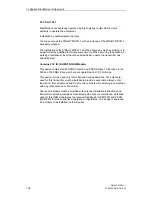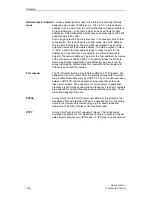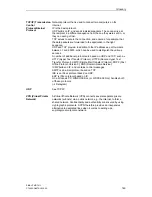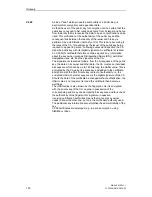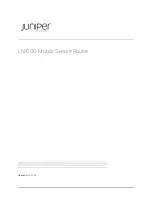
Glossary
SINAUT MD741-1
C79000-G8976-C236-05
147
Private Key, Public
key; Certification
(X.509)
In asymmetrical encryption algorithms 2 keys are used: a
Private Key
and a
Public Key
. The public key serves to encrypt data and the
private key to decrypt them.
The public key is provided by the future recipient of the data to those
who will send the data to him in encrypted form. The private key is
possessed only by the recipient and serves to decrypt the received
data.
Certification:
So that the user of the public key (for encryption) can be certain that
the public key conveyed to him really does come from the entity that is
to receive the data to be sent, certification can be used: the verification
of the authenticity of the public key and the consequent link between
the identity of the sender and his key is performed by a
Certification
Authority or CA
. This is done according to the rules of the CA, for
example by the sender being required to appear in person. Following
successful inspection the CA signed the sender's public key with its
(digital) signature. A
certificate
is created.
An X.509 certificate makes a connection between an identity in the
form of an 'X.500 Distinguished Name' (DN) and a public key. This
connection is authenticated by the digital signature of an X.509
Certification Authority (CA). The signature - an encryption with the
signature key - can be checked with the private key issued by the CA
to the certificate holder.
Protocol, Transfer
protocol
Devices that communicate with each other must use the same rules.
They have to "speak the same language". Such rules and standards
are called protocols or transfer protocols. Frequently used protocols
include IP, TCP, PPP, HTTP and SMTP. TCP/IP is the umbrella term
for all protocols that are based on IP.
Service provider
Supplier, company or institution that gives users access to the Internet
or to an online service.
Spoofing, Anti-
Spoofing
In Internet terminology, spoofing means to specify a forged address.
The forged Internet address is used to pose as an authorised user.
Anti-spoofing means mechanisms to reveal or prevent spoofing.
SSH
SSH (Secure Shell) is a protocol that enables secure, encrypted data
exchange between computers. Secure SHell is used for remote access
to the input console from LINUX-based machines.




